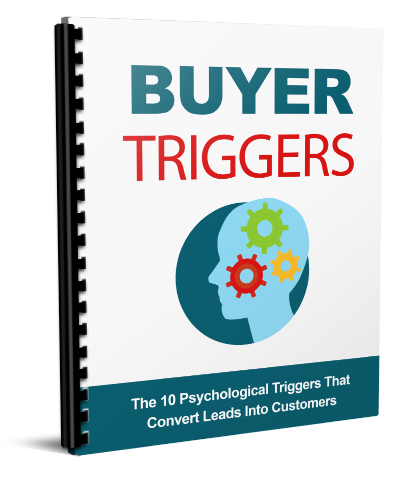The term “Affiliate Marketing” is very popular, but many people are confused by what this term means, and what the process entails. In fact, Affiliate Marketing is the most common method for passive sales and income, with over 81% of brands and 84% of publishers/service providers engaging in this type of marketing to promote their products and services.
This process is relatively low risk for all parties involved, and can bring a significant amount of income not only to the merchant, but to the affiliate as well.
How Does Affiliate Marketing Work?

The basic premise is that the merchant offers a product or service for sale.
The merchant creates (or contracts) an advertisement for their product or service.
The affiliate then promotes the product by sharing links or advertisements for the merchant’s product.
When the customer clicks on the links or advertisements to purchase the items through the merchant, the affiliate receives a share in the profits, known as a commission.
Basically, the merchant is responsible for their own website, selling the product, and delivering the product. The affiliate is only responsible for sharing a link or advertisement for the product, they do not handle any of the sale or transaction. In fact, the affiliate won’t even be aware of the sale until they receive their commission!
Who Is An Affiliate?
Many people are interested in extra sources of income in this day and age.
An affiliate is an individual or a company who promotes a merchant’s product or service through an affiliate program.
Affiliate programs can be found across the internet. Just a simple Google search for “affiliate program” will lead to a variety of programs that guide internet users in the process.
There’s an affiliate program for almost any marketable product.
Typical affiliates include bloggers, YouTube users, social media influencers, and independent review websites.
The more followers and website traffic these affiliates have, the more exposure the products or services for sale will receive in a single ad.
There are several ways for the affiliate to engage their audience and a product ad. One method is to simply post an ad or web billboard on their blog, website, or channel.
Some individuals are willing to write a full review or endorsement of a product or service, as well. Within the review, they will include their unique affiliate link to the website where their audience can find these goods or services.
An unique affiliate link is a special URL that affiliates receive once they join the affiliate program. This link contains the ID or username of the affiliate, and it is used to track leads and sales.
Affiliate links are essential to monitoring affiliates performances.
Social Media Influencers are generally willing to list links of products they use or endorse within their social media content, as well. For example, a YouTube vlogger may provide a link to the company that produced the clothing they are wearing throughout a video.
Choosing the Right Program to Promote
As an affiliate, it is essential to keep in mind the demographic of your audience for a product or service you want to sell. Make sure the content you write is relevant to the product, so that your audience will be interested in clicking on the ad or the link.
If your blog, website, or YouTube channel has a hyper-focused niche audience, then make sure the product or services you want to sell, match what might spark interest in that group.
While there is relatively low investment in having an affiliate link or ad, it is also important not to waste time and effort with something that provides little to no benefit.
It also helps if the affiliate feels strongly about the product or services advertised, as their excitement will lead to more excitement among their audience, which leads to more clicks and more business for the merchant.
It is also important for the merchant and affiliate to have a good working relationship.
Having a good rapport between the merchant and affiliate will allow for a richer experience in working together, wherein communication allows each party to share how things are working, what might be adjusted to increase traffic, as well as frequency of sharing a link or advertisement.
Some merchants may wish to give an affiliate a coupon code to share with their audience. This coupon code would only be available to the affiliate’s audience, and will give potential customers a sense of getting a good deal, as well as a deadline for purchasing a product or service.
How Does An Affiliate Get Paid?
There are three main ways to ensure the affiliate is paid for their marketing of a product or service. The affiliate’s fee should already be calculated into the price of the item they are touting on their site, blog, or channel, so this will not impact the profit made by the merchant.
The first option is Pay Per Sale. This is the most common method of payment for affiliates. In this structure, an affiliate only receives payment when a customer clicks on a link or ad on the affiliate’s site and completes a purchase. This is tracked via cookies and specific programs.
The next option is Pay Per Lead, which can be a little more complex. Rather than completing a purchase, the customer is encouraged to click the link or ad, review the merchant’s website, and join a mailing list, sign up for a trial, or download information.
The last option is Pay Per Click, in which the affiliate is paid for an increase of traffic to the merchant’s website through clicking a link or ad. This one can be a little more labor-intensive for the affiliate, as they will want to engage as much of their audience as possible for the highest level of commission.
Affiliate Marketing can be a low-risk way to spread the word about a product or service to a variety of audiences who might not otherwise stumble up on a merchant’s website.
By engaging affiliates with strong audiences and established web channels, merchants can advertise their products to an entirely new segment of the population, gaining customers at a very low cost!
What Is High Ticket Affiliate Marketing (HTAM)?
High Ticket Affiliate Marketing (HTAM), is the very same process of Affiliate Marketing. This term refers to products which are priced much higher than the standard affiliate products.
High Ticket Affiliate Marketing involves products and services that typically cost $1,000 or more.
While this is a great opportunity for strategic and intrepid marketers to use their existing websites, blogs, and channels for an incredible profit, it is important to note that the process is a very different experience than standard affiliate marketing.
How Does HTAM Work?
With standard affiliate marketing, the merchant and affiliate simply agree on terms and conditions, and the affiliate can immediately start to promote merchant’s products.
High ticket affiliate marketing requires a more serious committment between merchant and affiliate, because the rewards are so much greater.
The promotion process is the same of a standard affiliate program: affiliate is provided with an affiliate link, or coupon code to promote on their site or to their audience, and whenever that ad, link, or coupon code is used to purchase a product or service, the affiliate receives a commission of the overall purchase price.
There are two main types of high ticket affiliate marketing programs, and it is important for a potential affiliate to evaluate which scenario best fits their needs and skills.
In the first option, each item or service sold is a high priced item, but the commission is low. For example, if a merchant sold items that cost $10,000, a 10% commission would be $1,000.
In the second scenario, the merchant sells items or services that are not as expensive, but the commission rate is much higher, perhaps upwards of 50%. While it might be tempting to gravitate towards the $1,000 payout, an individual considering high ticket affiliate marketing must be aware of how frequently they can anticipate that big pay out.
While consumers do make large purchases, they are typically not made as frequently or as quickly. A more popular product or service with a greater audience and a higher commission rate could earn more money more quickly than one very expensive item.
The High Ticket Marketing Process
Because high ticket marketing is associated with a larger payout, it is not a simple matter of adding a link or advertisement to a site. Some high ticket affiliate programs may require a monthly membership between the merchant and affiliate.
There are also many programs that offer training or coaching from the merchant to help affiliates generate traffic and interest in a product or service.
By signing up for these programs, affiliates are truly becoming an extension of the sales and marketing team of these merchants, so merchants will want to be sure that the effort matches the incentive.
Additionally, merchants will be aware that consumers will take time to make high ticket purchases.
Unlike standard affiliate marketing programs, these high ticket items are rarely impluse purchases. For this reason, merchants always include cookies and tracking pixels in their affiliate program that will track future sales from your site for a specific period of time.
This means that, while it may take thirty days for a consumer to consider a high ticket purchase that they encountered on a website, that website’s owner will still get commissions for the consumer’s purchases.
This passive sales method is still more cost effective for merchants than standard advertising, because the affiliate is doing the active promotion of the product or service to their audience, rather than the merchants spending additional money paying for advertising on a variety of sites, and paying staff to make active sales.
Picking the Best High Ticket Affiliate Marketing Program
When choosing a high ticket affiliate marketing program, it’s important for a potential affiliate to research potential merchants and their programs.
First, the high ticket product or service must make sense with the content the affiliate already posts. Typical high ticket marketing programs include health services, money and investment services, programs to help entrepreneurs enhance their businesses, hobbies and travel, beauty products and services, and sports equipment or getaways.
A simple search of the internet can help a potential high ticket affiliate discover programs that could be relevant to their content.
High ticket affiliate marketing is also more of a relationship building exercise, so it is crucial for an affiliate to have a deep understanding of the product or services they are promoting in order to gain more sales.
Both the affiliate and the merchant will want to be aware of the reputation of each party, as well as the typical demographic of consumers. While a particular luxury item may be interesting to an affiliate, the audience will only wish to purchase what strikes their interests.
The audience may have questions, or need coaxed to make a sale, so rather than a one-time link, the affiliate will need to post content that encourages interest in the high ticket item, and content that generates traffic to their site specifically because of that high ticket item.
Checking Out HTAM Programs
An affiliate will want to increase traffic to their site, as well as focus Search Engine Optimization (SEO) to their site. The higher the traffic, the greater the likelihood of a consumer purchasing the product, resulting in a higher commission for the affiliate.
The terms and conditions of the high ticket affiliate marketing program must also be well established. As many merchants require a membership or licensing agreement as part of the program, affiliates will need to know key details, such as:
HOW does the merchant pay, and HOW OFTEN? For example, some merchants pay via PayPal upon request, whereas other merchants pay only after an affiliate has completed a certain number of sales.
–
WHAT PERCENTAGE is the commission, and on WHICH SERVICES? A luxury resort, for example, may pay a certain percentage in commission when a vacation is booked through an affiliate, but may pay a reduced rate for add-ons or packages.
–
WHEN do the cookies expire? Some merchants allow credit for sales for as long as the affiliate has a relationship with the merchant; others only allow commission to be paid for 30 days after the consumer’s first purchase. This will help an affiliate know how aggressive they must be in promoting an item or service.
–
WHO is the audience and WHAT PROBLEM does this product or service solve? Many high ticket affiliate marketing programs recommend marketing through email lists or newsletters in addition to web content. While this is a fantastic plan to generate interest, it is important that the content be relevant, timely, and something that interests the intended audience.
High Ticket Affiliate Marketing can be a fantastic opportunity for both merchants and prospective affiliates; however, it is important that the affiliate have adequate information on the product in order to market it most effectively.
When traffic is generated through relevant content and adequate coverage by the affiliate, this program can be financially beneficial for both the merchant and the affiliate!










[…] experienced marketers also like to throw in membership programs, affiliate programs, and more for an interactive edge that can truly grow their customer base. That’s a lot of […]